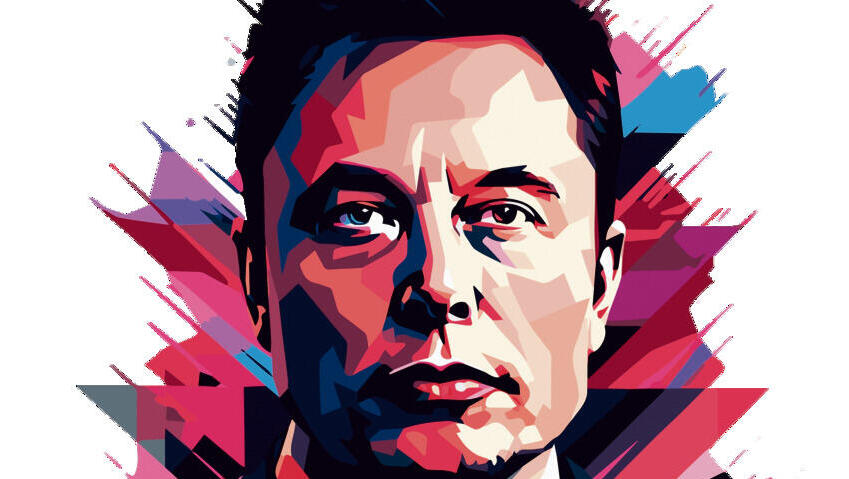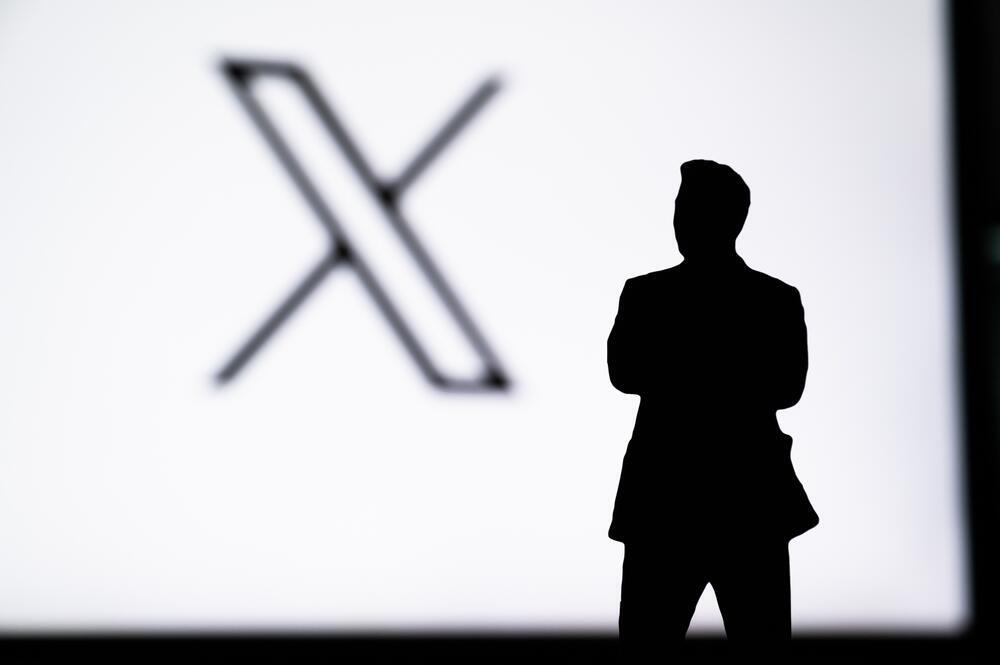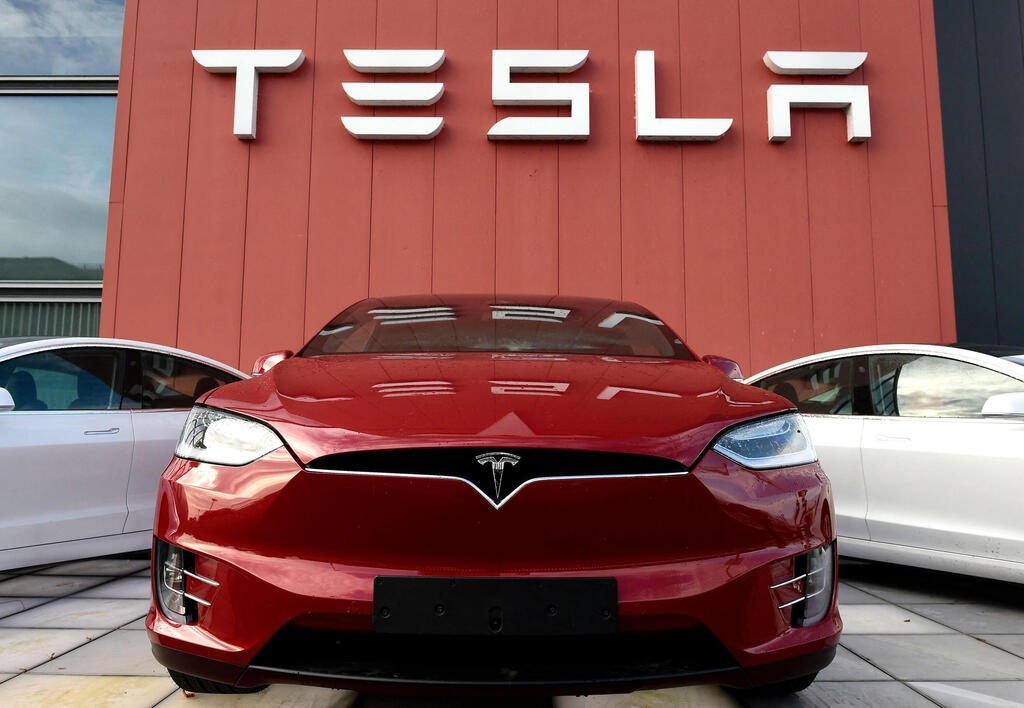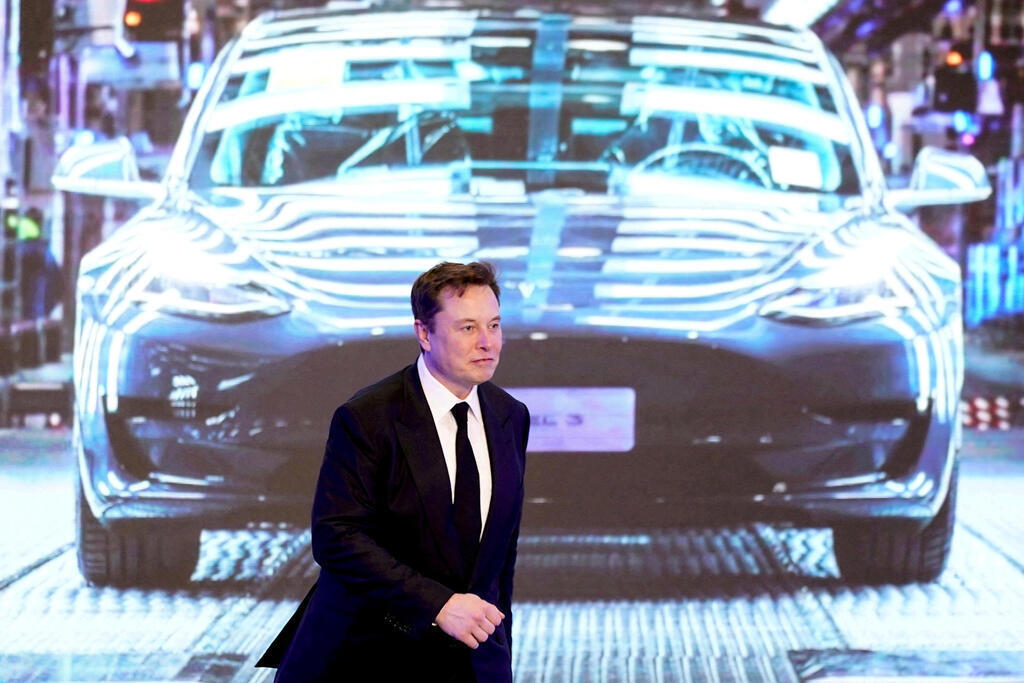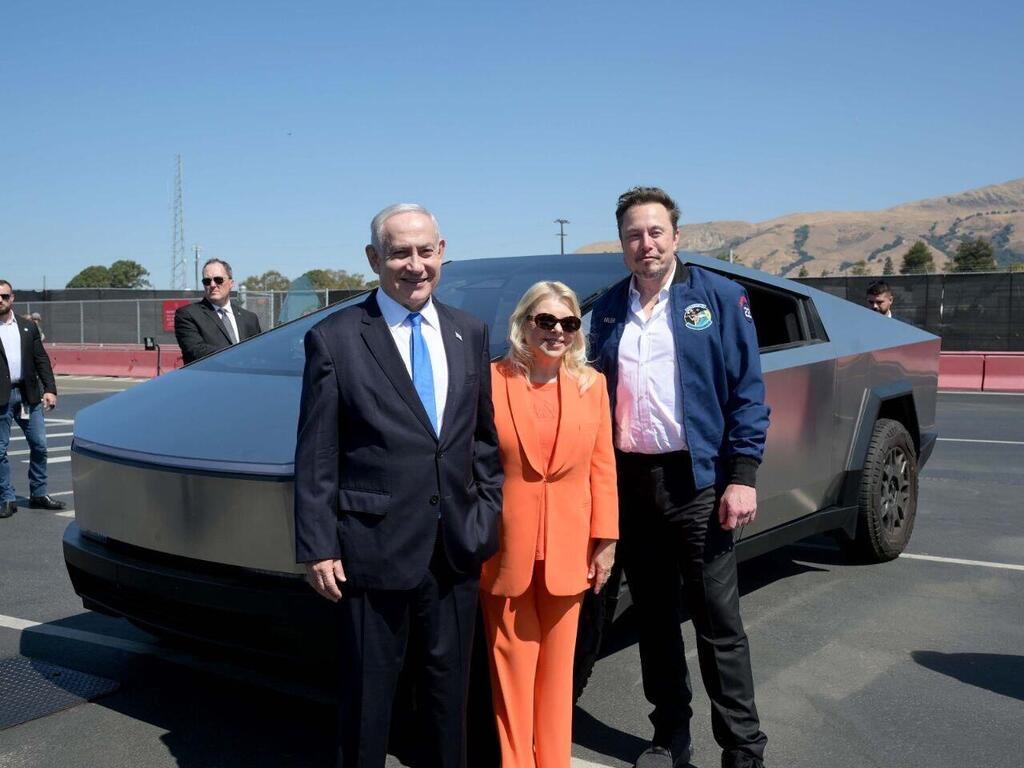Getting your Trinity Audio player ready...
Elon Musk's views on social and political matters have garnered an ever-mounting audience in recent years. This heightened scrutiny began when he explicitly criticized the U.S. government's measures to combat the COVID-19 pandemic. His negative responses to the U.S. and NATO's backing of Ukraine further fueled this interest.
Read more:
The acquisition of the social media platform Twitter around a year ago only added to this. Prior to these events, Musk was mostly covered in gossip sections and financial news for his work on autonomous vehicles, his space rocket launches, or for personal stories about his relationships with his multiple wives and 11 children.
Musk is only 52 years old and can already boast having around 5 or 6 biographies written about him, but only Walter Isaacson was able to write a biography about the world's richest man while enjoying Musk's full cooperation. While you would assume it results in the most accurate account of Musk's life, that might not be the case.
Musk regularly attributes his departures from conventional behavior and accepted norms to the impact of his upbringing, particularly the influence of his father, Errol Musk. He also cites his Asperger's syndrome as an integral part of his family heritage, which he believes accounts for the perceived imperfections in his personality, his social interactions and his occasionally unconventional conduct. In Isaacson's biography, the narrative commences with a three-generation family history, beginning with Musk's maternal grandfather, Joshua Haldeman, who left Canada to settle in South Africa.
Haldeman was an intense racist and antisemite, who blamed the financial-oriented Jews for all the problems of the contemporary world. In Canada, he was at the forefront of seditious racist groups, spreading his beliefs through various mediums such as pamphlets, books and public declarations.
He found in South Africa what he believed was missing in Canada – a severe apartheid regime and avenues to spread his virulent writings against what he perceived as primitive blacks, safeguarded by manipulative Jews. While Isaacson does include the grandfather in the narrative, it would have been fitting for him to delve into the grandfather's disgraceful writings and present chosen extracts.
Just to be clear, Elon Musk is not his grandfather and is not even remotely responsible for his grandfather's opinions, but there was always something just outside the realm of normalcy that made him tick. This excerpt from the book might elucidate that point:
"Musk developed an aura that made him seem, at times, like an alien, as if his Mars mission were an aspiration to return home and his desire to build humanoid robots were a quest for kinship. But his childhood also made him all too human, a tough yet vulnerable boy who decided to embark on epic quests.
"He developed a fervor that cloaked his goofiness, and a goofiness that cloaked his fervor. Slightly uncomfortable in his own body, like a big man who was never an athlete, he would walk with the stride of a mission-driven bear and dance jigs that seemed taught by a robot. With the conviction of a prophet, he would speak about the need to nurture the flame of human consciousness, fathom the universe and save our planet.
"At first I thought this was mainly role-playing, the team-boosting pep talks and podcast fantasies of a man-child who had read "The Hitchhiker's Guide to the Galaxy" once too often. But the more I encountered it, the more I came to believe that his sense of mission was part of what drove him. While other entrepreneurs struggled to develop a worldview, he developed a cosmic view."
Tales of eccentricities
From his early years, Musk held a keen interest in computer games and science fiction narratives. These games served as a soothing outlet, helping him cope with episodes of anger and restlessness. As he delved into the pursuit of developing the perfect electric vehicle, he simultaneously shifted his focus to another passion that had always captivated him - the rocket and space industry. During a period when the US was scaling back its involvement in these sectors and largely overlooking advancements in its missile systems, Musk maintained his confidence in his capacity to introduce systems that could revolutionize the field.
Walter Isaacson enumerates six major corporations that Musk has established throughout his innovative business career. His book offers a comprehensive and meticulous account of the development stages of each of these companies up to the present day, with more still to come. After all, when Elon Musk designs a new car, he must ensure that every aspect of it stands out from its counterparts in other companies.
For instance, it wouldn't be fitting for a Tesla's door opening mechanism to rely on a conventional handle, as seen in other vehicles. A unique mechanism must be crafted, one that immediately signals to the user that the product originated from the mind, was designed by and manufactured under the supervision of none other than Elon Musk. He is a remarkable inventor and innovator who stands in a league of his own, even when compared to the likes of Thomas Alva Edison.
Each innovation necessitates meticulous planning, countless meetings, drafts, trials and enhancements. Walter Isaacson leaves no stone unturned in his account, narrating each meeting in detail. Although the participants in the discussions frequently change (since they rarely last long with Musk), the format remains constant. Musk asks probing questions, expects comprehensive and prompt responses, and reacts harshly to anyone who fails to align with his perspective. Elon Musk does not take kindly to opposition, a sentiment echoed by hundreds of his skilled and competent former employees. They can attest that their high-strung boss did not hesitate to dismiss them without a second thought.
From Twitter to X
During the acquisition of Twitter, Musk's intensity escalated to alarming and ominous levels. His swift action in changing the social network's name after acquiring it was a clear indication of his triumphant feeling. With this, Twitter's name and reputation were set to be wiped out, and all users were mandated to refer to it as 'X'. Musk's fascination with the letter 'X' is boundless and unrestricted. He made it a point to incorporate this letter in all the companies he founded in some form or another. Even his children were drawn into this 'X' mania when it became a part of their official names.
Musk never flinched when it came to firing employees and partners. However, his ruthless behavior peaked during the creation of 'X'. He eliminated any trace of Twitter from the company and instilled a sense of fear in those he let go, who worried that his far-reaching and vindictive influence might follow them to their new jobs. Musk's actions during this period suggest that by acquiring Twitter he has made a significant stride in his stature and his capacity to influence the direction of society in the US and globally, according to his own vision.
An increasingly diverse group of people are wondering, "What motivates Elon?" His declarations about altering his conduct and the regulations of his newly acquired venture have not eased concerns. His biographer, along with the rest of the world, contends that his sole aim is to save the world. The threats to human survival on Earth are escalating and becoming more severe, necessitating the pursuit of groundbreaking solutions.
Musk is quick to convey that the risk is imminent and tangible, which necessitates the establishment of a safe haven, whether short-term or long-term, for those who survive the impending catastrophe that will ravage Earth. The belief held by Earth's population that human life is solely viable on Earth is misguided, according to Musk. We ought to reject the single-planet life concept and advocate for the multi-planetary life alternative.
In the event of California's destruction, Musk says we would relocate to Mars until the threat subsides, and anyone determined to return to our original planet can do so without issue. Within a multi-planetary cosmos, transitioning from one planet to another would be as simple as switching apartments in our current world. It's crucial to prepare these shelters and develop the transportation means to facilitate our collective relocation. Elon Musk's spacecraft are intended for this very mission.
Declining birth rates coupled with the advancement of artificial intelligence amplifies the threat of annihilation, and until we establish the necessary conditions for life across multiple planets, we must resolutely combat the destructive elements present in our singular planetary world. The immediate and formidable adversaries are the advocates and adherents of what the book's translator labels "Woke Culture."
These 'woke' individuals, champions of progress, enlightenment, ultimate civil rights and political correctness, jeopardize our liberties, restrict our freedom of speech, homogenize our culture and, most significantly, they undermine and debilitate our younger generation. Elon Musk has portrayed himself as a casualty of 'woke' culture. When his transgender daughter, originally named Xavier Musk, filed an official request to change her name to Vivian Jenna Wilson and expressed her intention to completely disassociate from her father, Musk attributed this to her being a clear product of the schools he sent his children to, which he believes are propagators of this overly politically correct culture.
Walter Isaacson has a keen appreciation for innovation and discovery. After notable achievements in American journalism, including his role as the editor of the weekly Time magazine, Isaacson stood out as a popular biographer. His list of subjects includes, among others, Henry Kissinger, Benjamin Franklin, Leonardo da Vinci, Albert Einstein and Steve Jobs - a prestigious gallery of revolutionary creators and trailblazers in various diverse fields. Elon Musk should take pride in being included in such an esteemed list. However, it seems that Musk's biography may not be considered a leading and outstanding work among Isaacson's collection of heroes.
In the acknowledgements section at the end of the book, the author lists his witnesses and information providers and expresses his gratitude toward them. This list prominently features Musk's partners and employees in his ventures and factories, family members and others. Regarding Elon Musk's part in the creation of the biography, Isaacson writes explicit and cautious words as if to dispel any suspicion of undue influence.
"Elon Musk allowed me to accompany him for two years, invited me to attend his meetings, collaborated in countless interviews and late-night conversations, provided emails and text messages, and encouraged his friends, colleagues, family members, advertisers, and ex-wives to talk to me. He neither asked to read nor did he read the book before it was published, and he did not influence it in any way," Issacson writes.
There's no reason to believe that Isaacson's account doesn't accurately portray the dynamics between the protagonist and the author during the time of the book's composition. Isaacson doesn't avoid criticizing or detailing Musk's character deficits and conduct. However, there are instances when the book's readers anticipate a more critical and discerning analysis of Musk from the biographer. The book's release was orchestrated similarly to the rollout of a new phase in one of Musk's initiatives.
Every unveiling of a new rocket or a more advanced electric car model is marked by intense preparation and stress. Isaacson's narratives share a common pattern. Musk sets ambitious deadlines, his employees express doubts about meeting them, but Musk remains unyielding. He personally oversees the production process, admonishing and motivating as required, dismissing anyone expressing skepticism and dealing with his own tumultuous emotional states. On the day of the launch, everyone gathers for the ceremony. The rocket is fired, the car is driven. If anything goes awry, Musk has a clear idea of whom to hold accountable.
The biography's release date was predetermined, and the translators were committed to this timeline. Any pronunciation or editing mistakes in the final product are likely due to the pressures of the publishing process. Yet, as noted, this is a typical experience when dealing with Elon Musk.


